Nov 17, 2014
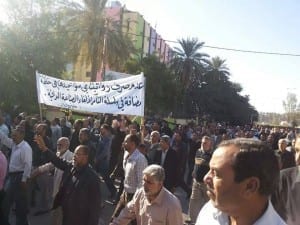
Carrying signs protesting unpaid wages, Iraqi textile workers were among workers from several industries demanding back pay. Credit: Ali Rakeb
The Iraqi government’s offer of partial payment to workers in several industries who have not received salaries for months “is unjust” and should be amended to include all unpaid back pay, says the General Federation of Iraq Trade Unions (GFITU).
The Iraq Council of Ministers last week announced it would pay one month’s wages to workers at plants and factories affiliated with the Ministry of Industry. The companies, which are required to generate sufficient operating revenue to pay 40 percent of workers’ salaries, have repeatedly been unable to do so, and the Ministry of Industry has previously paid workers’ salaries when the companies run out of funds.
The Council of Ministers took the action after thousands of workers in Iraq’s leather, textile and vegetable oil industries protested unpaid wages this month in a series of rallies, most recently in Babylon, where hundreds of workers packed the streets leading to the factory.
Ala’a Sabri, general manager of the association of textile industries in Babylon, said, “the protestors stopped work because they have not been paid since August.”
When vegetable cooking oil company workers in Missan, who also have not been paid since August, took to the streets, they were backed by local government officials who asked the government to pay the workers and renovate Missan’s cooking oil factory, which employs 630 workers.
Clothing company employees in Najaf, who produce men’s suits, pants, jackets, gown’s (dishdasha) and military uniforms, and textile workers in Diwanyya and at the Kut textile factory, also rallied for unpaid wages.
“We are protesting today to request the officials resolve these issues,” Hayder Abdul Amir, one of the protesting employees at Kut, told Al Mada press. “We will continue until they comply with our demands.”
Earlier this month, leather workers, who have not been paid for two months, marched in a large demonstration at two leather companies in Karradha, in central Baghdad. The rally followed one in September, when leather workers protested unpaid wages from July and August.
In an action in support of workers, GFITU members rallied at the Ministry of Interior to demand the government formulate clear policies that guarantee the rights of workers in Iraq’s industrial sector by ensuring workers are paid on time. GFITU also called on the government to take steps to address ongoing factory closures that have put many workers out of a job.
GFITU presented a memo addressed to the Prime Minister Hayder Al Abadi that states: “A large percentage of Iraq’s population, represented by 350,000 employees of the Ministry of Interior and their families, are suffering from hardship and serious neglect.”
The memo listed several demands, including timely wage payment; government transparency when awarding textile and other industry contracts; and creation of a joint government council to address obstacles companies face in staying solvent.
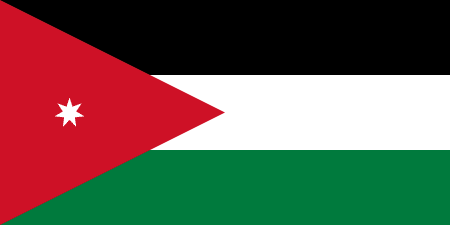
Nov 17, 2014
Tayel Alkhamayseh, president of the Independent Union of Phosphates Workers in Jordan, returned to his job this month after worker and human rights organizations denounced his November 6 arrest and suspension, pressed for his reinstatement and decried his arrest as a move to prevent unionization at the plant.
The Jordanian Federation of Independent Trade Unions (JFITU) sent letters protesting his detention to the Ministry of Labor and company management. The National Center for Human Rights and Jordanian civil society organizations generated additional support for Alkhamayseh, who was reinstated after a meeting with management in which it was established that he had no intention of declaring a strike.
The Phosphate Workers Union is affiliated to the JFITU, which is campaigning for the Jordanian government to adopt legislation to allow full freedom of association for all workers.
The JFITU says Alkhamayseh’s arrest and suspension indicate continuing pressure to restrict the practice of independent trade unionism in Jordan. The federation notes that his reinstatement is an important demonstration of Jordanian support for independent trade unionism.
The federation formed last year, when nine unions representing more than 7,000 workers joined forces to mobilize for improved economic conditions and greater political freedom.
Alkhamayseh, an engineer, works in the White Valley phosphate mine near Karak in the south of Jordan. As president of the workers’ union in Karak, he organized a meeting that included workers from several branches of the same company. Management then suspended Alkhamayseh and accused him of inciting a strike. In response, workers organized a protest and work stoppage.
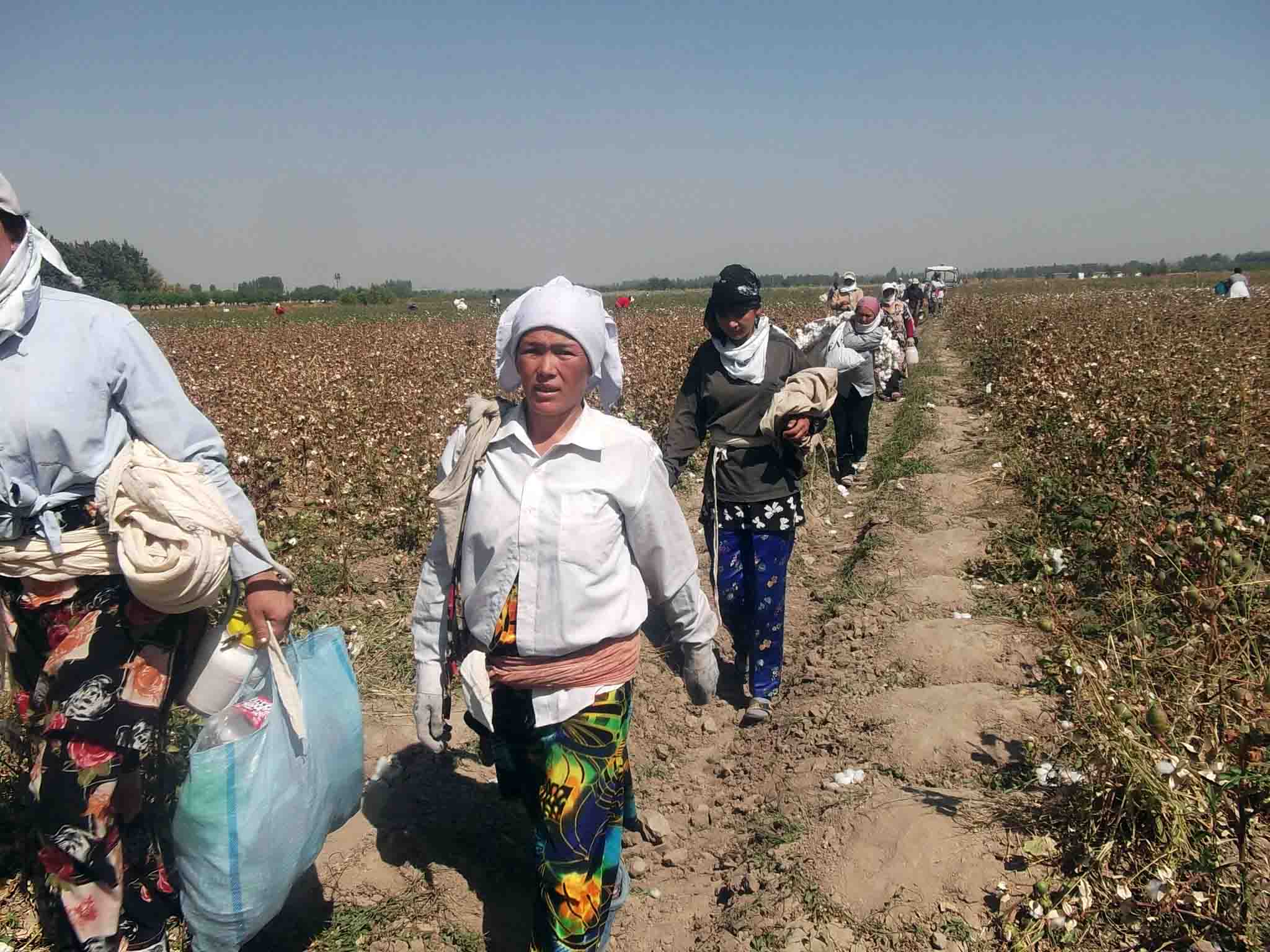
Nov 14, 2014
Uzbekistan continued using forced labor, including children, for the country’s recent cotton harvest, with more teachers than ever compelled to toil in the fields this year, according to a report released today by the Uzbek-German Forum.
In schools across the country this fall, 50 percent to 60 percent of all teachers were absent from classrooms at any given time, leaving schools severely understaffed and unable to conduct normal classes.
The report, a preliminary look at Uzbekistan’s state-sponsored labor system of cotton production this season, found that the government forced fewer children to work but replaced them with university students and public- and private-sector employees.
Yet the report documented numerous instances of child labor in several regions and concluded that “these cases indicate that the government of Uzbekistan has not undertaken durable, structural reforms to eliminate definitively child labor in Uzbekistan. Nor has the government made it clear to local officials that child labor will not be tolerated and task them with enforcing laws prohibiting child labor.”
The assessment parallels that of the U.S. State Department, which in October placed Uzbekistan among 12 countries with the worst forms of child labor. The State Department report, “Findings on the Worst Forms of Child Labor,” listed Uzbekistan as one of three countries, along with the Democratic Republic of Congo and Eritrea, that received the assessment because of government complicity in forced child labor.
The Uzbek-German Forum report, compiled by experienced researchers in six regions of Uzbekistan as well as the capital, Tashkent, found a large number of injuries and deaths during this season’s harvest, including at least 17 people who died and 35 who were injured after being struck by cars or tractors. Individuals forced to pick cotton were housed in garages, unused farm buildings or local schools, nearly all of which were unheated and without water or hygiene facilities.
For decades, more than 1 million Uzbeks have been forced to pick cotton each fall. They are threatened with the loss of jobs, social benefits and public utilities if they do not participate. Many face fines and criminal prosecution, according to the report.
Profits of Uzbek’s cotton sector support only the government, according to the Uzbek-German Forum. Farmers are forced to meet state-established cotton quotas, purchase supplies from one state-owned enterprise and sell the cotton to a state-owned enterprise at artificially low prices. The system traps farmers in poverty, and the state profits from high-priced sales to global buyers who use the cotton for goods made by brand-name retail and apparel supply chains.
Read the full report: “The Uzbek-German Forum for Human Rights Preliminary Report on Forced Labor During Uzbekistan’s 2014 Cotton Harvest,”
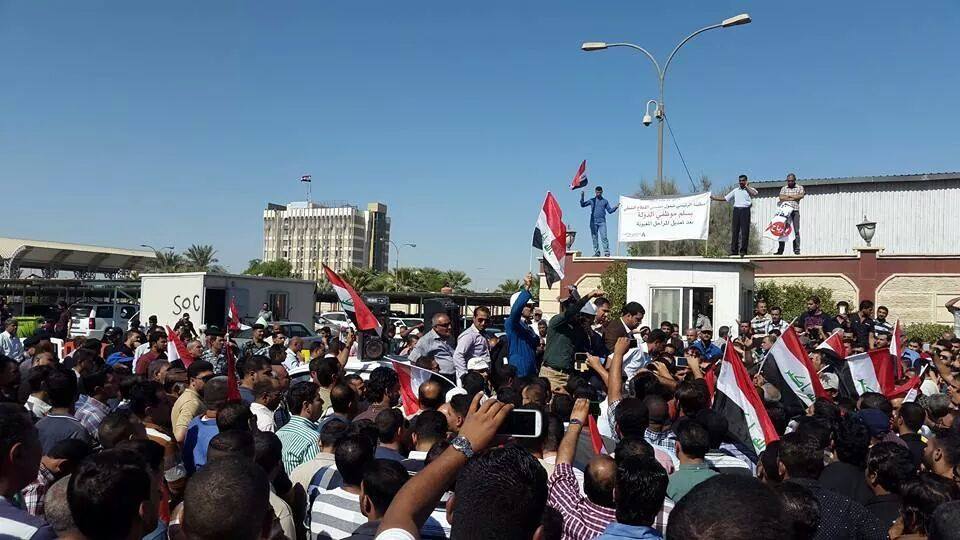
Nov 7, 2014
Some 2,000 workers recently took part in a rally in Basra organized by the Southern Oil Workers Committee, after the government refused to negotiate over issues such as jobs for unemployed workers, skills training and higher pay for hazardous work.
In August 2013, the government excluded workers in the state-run oil sector from receiving wage and benefit increases granted to other public employees. Public-sector wage increases ranged from 5 percent to 114 percent.
Workers delayed the action because of the country’s ongoing instability. Meanwhile, the committee’s negotiation team traveled to Baghdad to meet with government officials at the Ministry of Oil. After negotiations stalled, workers waged a mass rally.
“We are determined to achieve our rights and find no other way to be heard than peaceful demonstrations and sit-in actions,” the Southern Oil Committee said in a statement.
Read the full list of oil workers’ demands in English and Arabic.
Nov 5, 2014
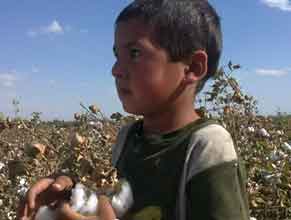
A child picks cotton in Uzbekistan, part of the government’s forced labor system. Photo: Cotton Campaign
An estimated 5.5 million children labor in factories, brick kilns, farm fields and as domestic workers, exposed to dangerous and deadly working conditions and unable to attend school.
And 5.5 million is the number of signatures the nonprofit coalition End Child Slavery Week is seeking on a petition urging the United Nations (UN) to step up its focus on child slavery in the world body’s Sustainable Development Goals (SDG). The SDGs map the desired direction of member countries for the next 15 years.
The signatures will be hand-delivered to UN Secretary General Ban Ki-Moon as part of a broader campaign to revise the SDGs to incorporate a sharper global focus on addressing all forms of child labor, including enactment of appropriate laws to set and enforce a minimum age for employment, and measures to ensure that children go to school.
Help the campaign reach its goal: Sign the petition now.
“The number of child slaves has remained constant in the last two decades,” says Kailash Satyarthi, who won the Nobel Peace Prize this year for his work as a child rights’ activist. Child labor is a “largely neglected, ignored, denied aspect of human rights. Governments are saying they don’t have child labor” but “these children remain hidden behind the demonstrations of progress and modern images of government.”
In 1998, Satyarthi created the Global March Against Child Labor, a coalition of unions and child rights organizations from around the world, to work toward elimination of child labor. Global March members and partners are now in more than 140 countries. Many of these civil society groups, including the Solidarity Center, came together this year to launch End Child Slavery Week, focusing on improving the Sustainable Development Goals.
The mass mobilization campaign around the petition will ramp up November 20–26 with a week of public education focused on child labor and trafficking.
Part of the education process involves making the connection between jobs that do not pay living wages and the subsequent need for parents to take desperate actions to support their families, such as sending their children to work, says Satyarthi. If workers had the ability to freely form and join unions to improve their working conditions, they could improve their wages and support their families, he says.
“If parents can’t buy for themselves, how can they buy for their children?” he asks.
You can get the word out by signing and sharing the petition and through Facebook and Twitter @ECSWeek with the hashtag #endchildslaveryweek.





